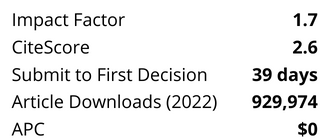Producing drinking water from raw waters like river bank filtrate nowadays requires the safe removal of ever new emerging organic substances. At present, in Germany perfluorinated organic compounds are heavily discussed. When it comes to trace organics removal, reverse osmosis (RO) and nanofiltration (NF) are alternatives to conventional bank filtrate treatment technologies like ozonation and activated carbon adsorption. However, the trace organics removal capabilities of dense membranes are still under investigation. Questions about concentrate disposal strategies are still open. The paper presents results from lab-scale and pilot studies which were conducted for the project planning of a 1,100 m3/h NF plant treating river Rhine bank filtrate. Membranes from loose NF to dense RO were investigated spiking the raw waters with trace organic substances which usually pass the soil passage and to some extent even the conventional treatment process. The results showed high retention capabilities of the more dense membranes, even under ageing conditions.
Skip Nav Destination
Article navigation
Research Article|
April 01 2008
Removal of trace organic substances from river bank filtrate – performance study of RO and NF membranes
R. Gimbel;
R. Gimbel
2R. Gimbel Institut für Energie- und Umweltverfahrenstechnik, University Duisburg-Essen Bismarckstr. 90, 47057, Duisburg, Germany rolf.gimbel@uni-due.de
Search for other works by this author on:
C.-J. Nacke
C.-J. Nacke
3Stadtwerke Dinslaken GmbH, Kleiststr. 3, 46539, Dinslaken, Germany E-mail: c-j.nacke@stadtwerke-dinslaken.de
Search for other works by this author on:
Water Supply (2008) 8 (1): 85–92.
Citation
A. Loi-Brügger, S. Panglisch, G. Hoffmann, P. Buchta, R. Gimbel, C.-J. Nacke; Removal of trace organic substances from river bank filtrate – performance study of RO and NF membranes. Water Supply 1 April 2008; 8 (1): 85–92. doi: https://doi.org/10.2166/ws.2008.021
Download citation file:
Sign in
Don't already have an account? Register
Client Account
You could not be signed in. Please check your email address / username and password and try again.
Could not validate captcha. Please try again.
eBook
Pay-Per-View Access
$38.00




%20cropped.png?versionId=5956)